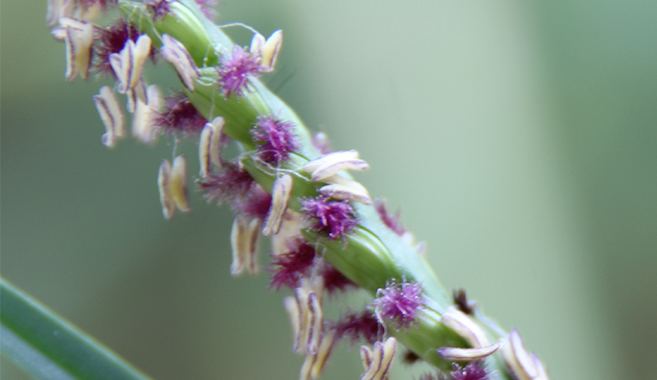Overview

With collaborative user projects, the JGI’s Plant Program delves into the natural world’s potential to address global challenges by exploring plants’ role in capturing carbon, detoxifying soils, interacting with other organisms, and adapting to environmental changes. The program lays the groundwork for sustainable solutions to current problems facing humanity. A major focus are biofuel feedstock species and plant-microbe interactions, advancing efforts to create renewable energy sources and bolster agricultural resilience. The program’s discoveries support a plant based bioeconomy where plants are a major source of chemical production and contribute to a healthier planet and a thriving future.
Resources and Tools

Phytozome is the JGI's Plant Comparative Genomics portal. Families of related genes representing the modern descendants of ancestral genes are constructed at key phylogenetic nodes. These families allow easy access to clade-specific orthology/paralogy relationships as well as insights into clade-specific novelties and expansions.

Brachypodium distachyon is an annual grass researchers use as a model for grasses used to produce biomass, food, feed and forage because it is well-suited to experimental manipulation in the laboratory. Both germplasm (sequenced mutants and natural accessions) and protocols (transformation, crossing, mutagenesis) are available to the community.
EcoFABs link genome biology to ecosystem processes through model laboratory ecosystems. They are small plastic growth chambers where plants grow without soil. Using EcoFABs allow researchers around the world compare their work consistently.
GENESPACE tracks regions of interest and gene copy number variation across multiple genomes. It provides the ability to discover syntenic orthologs, generate publication quality graphics and explore pangenome views of genes within and across species.
HipMer is a high-performance application that produces high-quality de novo assemblies for very large-scale single genomes, based on the JGI assembly tool meraculous. It is now available for both eukaryotic and microbial metagenome assemblies. It is also available as an app in KBase.




